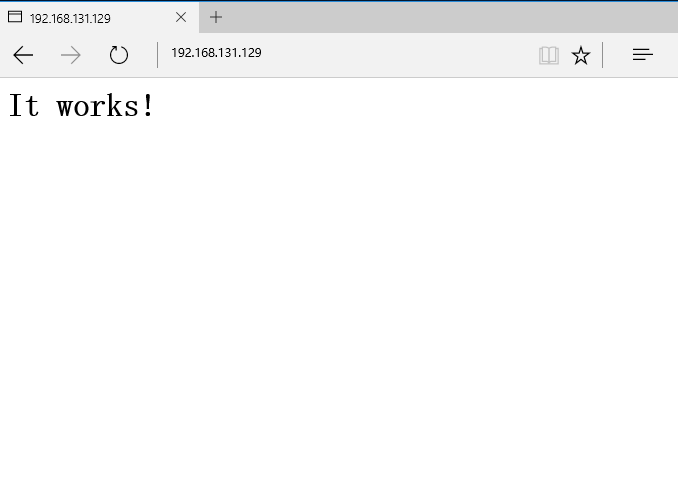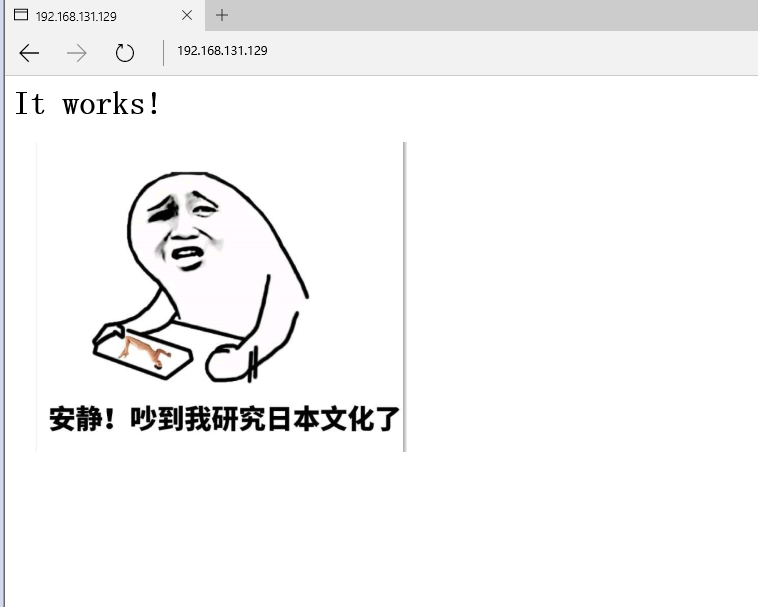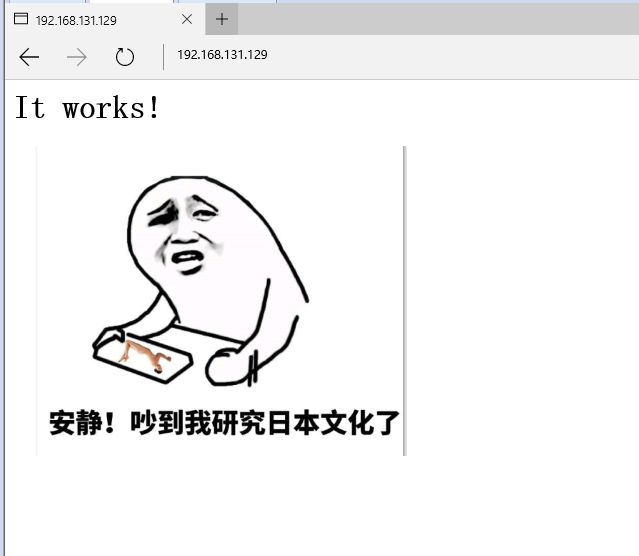Overview of Apache Web Page Optimization
In the enterprise, when Apache is deployed, only the default configuration parameters are used.
This causes a lot of problems for the website, in other words, the default configuration is for a lower level than before
Server Configuration, Previous Configuration No longer Applies to Today's Internet Age
To meet the needs of the enterprise, you need to consider how to enhance Apache's sexuality
Energy and stability, which is what Apache optimizes
Introduction to gzip
Configure Apache's web compression capabilities by using the gzip compression algorithm
Compress web content before transferring to client browsers
Function of ^
Reduce the number of bytes transmitted over the network to speed up the loading of web pages
Reduce traffic and improve users'browsing experience
** gzip has a better relationship with search engine grabbing tools
Apache web page compression module includes
mod_gzip module
moddeflate module
Apache 1.x
There is no built-in Web page compression technology, but third-party mod gzip modules can be used to perform compression
Apache 2.x
During development, mod deflate was built in to replace mod gzip
mod gzip module and mod deflate module
Both use gzip compression algorithm and work similarly
Compression speed of mod deflate is slightly faster, while compression of mod _gzip is slightly higher than that of mod_gzip, which takes up more CPU on the server
High-traffic servers, using mod_deflate may load faster than mod_gzip
Faster
Configure Web Page Compression
First check if the mod_deflate module is installed
Implement the apachectl-t-D DUMP_MODULES command
If there is no deflate_module (static) in the output, it is not installed at compile time
mod_deflate module
Recompile installation if not installed
●./configure --enable-deflate...
●make && make install
_Configure to turn on gzip functionality in configuring httpd.conf
●AddOutputFilterByType DEFLATE texthtml text/plain text/css
text/xml text/javascript
●DeflateCompressionL evel
●SetOutputFilter DEFL ATE
The first line represents what gzip compression is enabled for
The second row represents the compression level
The third line represents gzip compression of the output of this site by enabling the deflate module
Apache Compression Practice
Install Apache Service
Remote mount package folder to local and view
[root@localhost ~]# Mkdir/abc //Create mount point [root@localhost ~]# Mount.cifs //192.168.100.7/LAMP-C7/abc///mount Password for root@//192.168.100.10/LAMP-C7: [root@localhost ~]# cd /abc/ [root@localhost abc]# ls apr-1.6.2.tar.gz cronolog-1.6.2-14.el7.x86_64.rpm LAMP-php5.6.txt apr-util-1.6.0.tar.gz Discuz_X2.5_SC_UTF8.zip mysql-5.6.26.tar.gz awstats-7.6.tar.gz httpd-2.4.29.tar.bz2 php-5.6.11.tar.bz2
Unzip the source package into the / opt directory and move the httpd package
[root@localhost abc]# tar zxvf apr-1.6.2.tar.gz -C /opt/ [root@localhost abc]# tar zxvf apr-util-1.6.0.tar.gz -C /opt/ [root@localhost abc]# tar jxvf httpd-2.4.29.tar.bz2 -C /opt/ [root@localhost abc]# cd /opt/ [root@localhost opt]# ls apr-1.6.2 apr-util-1.6.0 httpd-2.4.29 httpd.txt rh [root@lamp opt]# mv apr-1.6.2/ httpd-2.4.29/srclib/apr [root@lamp opt]# mv apr-util-1.6.0/ httpd-2.4.29/srclib/apr-util
Install packages necessary for the lab environment
yum -y install \ gcc \ gcc-c++ \ make \ pcre-devel \ zlib-devel \ expat-devel \ pcre \ perl
Configure installation directory and modules
[root@lamp opt]#cd /opt/httpd-2.4.29/ ./configure \ --prefix=/usr/local/httpd \ --enable-so \ --enable-deflate \ --enable-expires \ --enable-rewrite \ --enable-charset-lite \ --enable-cgi
Compile and Install Apache
make && make install
Modify Apache configuration file
[root@localhost httpd-2.4.29]# cd /usr/local/httpd/ [root@localhost httpd]# ls bin cgi-bin error icons lib man modules build conf htdocs include logs manual [root@localhost httpd]# cd conf [root@localhost conf]# ls extra httpd.conf magic mime.types original [root@localhost conf]# vim httpd.conf [root@localhost conf]# ln -s /usr/local/httpd/conf/httpd.conf /etc/httpd.conf [root@localhost conf]# vim /etc/httpd.conf /deflate Search for keywords to find the row of keywords LoadModule deflate_module modules/mod_deflate.so //Remove Comments to Open Service /headers Search for keywords to find the row of keywords LoadModule headers_module modules/mod_headers.so //Remove Comments to Open Service /filter Search for keywords to find the row of keywords LoadModule filter_module modules/mod_filter.so //Remove Comments to Open Service //Use/Listen to find the location of keywords //Annotate ipv6, turn on ipv4 and change the listening port to local address Listen 192.168.131.129:80 #Listen 80 //Use/ServerName to find keywords and make the following modifications ServerName www.kgc.com:80 //Insert the following at the end of the file <IfModule mod_deflate.c> AddOutputFilterByType DEFLATE text/html text/plain text/css text/xml text/javascript text/ipg text/png DeflateCompressionLevel 9 SetOutputFilter DEFLATE </IfModule>
[root@localhost conf]# /usr/local/httpd/bin/apachectl -t Syntax OK //Verify grammar is correct [root@localhost bin]# . /apachectl start //start service [root@localhost bin]# netstat -ntap | grep 80 tcp 0 0 192.168.35.131:80 0.0.0.0:* LISTEN 35887/httpd [root@localhost bin]# systemctl stop firewalld.service //close firewall [root@localhost bin]# setenforce 0 //Turn off enhanced security features [root@localhost bin]# ./apachectl -t -D DUMP_mooules | grep "expire" Syntax OK
Use the test machine win10 to test, enter the web address 192.168.131.129 in the browser to access the home page Finally, open the fiddre software to capture the package
Finally, open the fiddre software to capture the package
Pictures from shared folders are copied to the web file directory and added to the web page
[root@localhost bin]# cd /abc/ [root@localhost LAMP]# ls apr-1.6.2.tar.gz fangdao.jpg apr-util-1.6.0.tar.gz httpd-2.4.29.tar.bz2 awstats-7.6.tar.gz tupian.png cronolog-1.6.2-14.el7.x86_64.rpm mysql-5.6.26.tar.gz Discuz_X2.5_SC_UTF8.zip php-5.6.11.tar.bz2 [root@localhost LAMP]# CP lf.jpg/usr/local/httpd/htdocs/ //Copy pictures to web folder [root@localhost LAMP]# cd /usr/local/httpd/ [root@localhost httpd]# cd htdocs/ [root@localhost htdocs]# ls index.html tupian.png [root@localhost htdocs]# vim index.html <html><body><h1>It works!</h1> <img src="tupian.png"/> </body></html>
Now we can see the added pictures when we access them again with the test machine. We can see that the capturing information of the pictures includes gzip compression information at the port.
Configure caching time for web pages
_Configure Apache with the mod expire module to enable Web pages on the client side
Browser caches for a period of time to avoid duplicate requests
When the mod expire module is enabled, the page header information is automatically generated
Expires tags and ache-Control tags for reducing customers
End access frequency and times to reduce unnecessary traffic and increase visits
Purpose of asking speed
Modify the httpd.conf configuration file
Enable the mod expires module and set any format of documents under the http protocol to 60
Expires in seconds
<lfModule mod expires.c\>
ExpiresActive On
ExpiresDefault "access plus 60 seconds"
</lfModule\>
Restart httpd service
Apache cache implementation
After configuring Apache Web Page Compression, configure the following
Configure Apache Profile
[root@localhost htdocs]# vim /etc/httpd.conf Insert the following at the end of the profile <IfModule mod_expires.c> ExpiresActive On ExpiresDefault "access plus 50 seconds" </IfModule>
Check syntax correctness and restart service
[root@localhost htdocs]# pwd /usr/local/httpd/htdocs [root@localhost htdocs]# cd /usr/local/httpd/ [root@localhost httpd]# cd bin/ [root@localhost bin]# . /apachectl-t //Check syntax Syntax OK [root@localhost bin]# ./apachectl stop [root@localhost bin]# ./apachectl start
We're doing a crawl test with the browser in the test machine win10, and we can see that the time we set for caching the web page appears in the header information